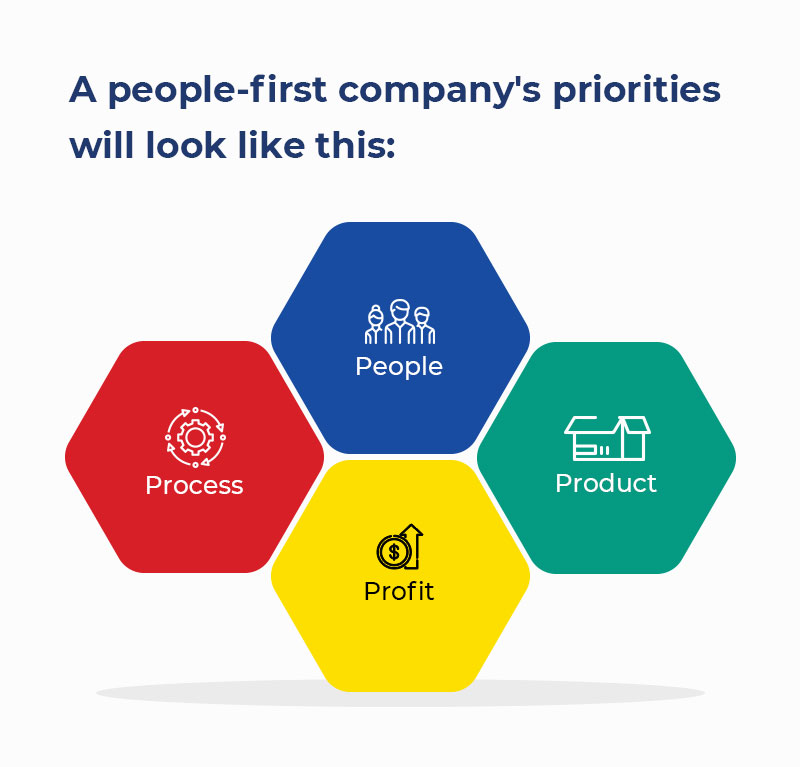
Have you watched the documentary The Man vs. The Machine? Do you remember the historic match of the reigning global chess champion Garry Kasparov versus the IBM computer Deep Blue?
If not, let’s refresh your memory once. On May 11, 1997, Deep Blue became the first machine to defeat a world champion in a six-game match under conventional time constraints.
After witnessing the historic match, many people started to believe that machines would take over the world in the coming years.
Imagine a world without people and full of computers. So, will there be life? No, because creativity is the soul’s spark. It’s the people who have souls not machines. It’s the people who create lives, and machines serve the role of catalysts.
People are an integral part of a business’s success. The three pillars or Ps of a successful business model are: People, Process, and Product. We often hear the advice to focus on the three Ps and everything will fall into place. But with time, companies focus predominantly on the process and product of our businesses and keep our people at bay.
Business leaders are increasingly recognising the advantages of building people-centric companies that prioritise employee happiness. Many companies emphasise the importance of their employees in their mission and vision statements. But the question remains, how many business leaders practise what they preach? What does it actually mean to ‘put people first’?
Well, if we consider the formal definition of ‘employment’, it goes something like this – “The fact of someone being paid to work for a company or organisation”
This is true to some extent. But the reality is that employees are still considered like gears in a machine whose main function is to generate outcomes mechanically and consistently. The return on investment of an employee is equal to whatever output he or she produces on behalf of the company.
The understanding and recognition that an employee will contribute to a company to the extent that they feel appreciated, respected, and recognised is lacking from this outmoded equation. The finest companies recognise and understand this, which is why they prioritise their employees.
If we think deeply, computers assist people in analysing and comprehending patterns as well as future possibilities when making judgements. But they are incapable of making judgments on behalf of humans.
Humans are innovative and creative. Unlike computers, humans can create and invent new things. But computers work with mechanical brains designed and programmed by humans.
Computers have artificial intelligence (AI), whereas humans have intellect and emotions. Businesses need to strike the perfect balance between humans and machines to get the best results.
Do you know what Steve Jobs said in an interview? He said, “Technology is nothing. What’s important is that you have faith in people, that they’re basically good and smart — and if you give them tools, they’ll do wonderful things with them. Tools are just tools. They either work, or they don’t work.”

Humans rely on the memory, computational capacity, and thinking abilities of their brains. But AI-powered robots rely on data and instructions input into the system.
In many businesses, AI is used to automate repetitive and redundant clerical jobs. On the other hand, human brains can focus on higher level activities that require critical thinking and decision making.
While investments in technology increase manifold YoY, resulting in disruptions and failures alike, a World Economic Forum report forecasts that 133 million new jobs are expected to be created by 2022, and guess what, not one of those hirings will ever result in a 100% failure.
At the end of the day, it’s our people who make the difference. When you establish a business on the foundation of its employees, you have a solid platform on which revenues can organically grow and legacies can be naturally built.